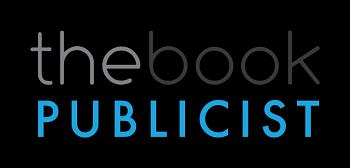Getting Self-Published: Agora Ottawa Presents Pros and Cons
Writing is hard but finding an agent and publishing traditionally is harder. While self-publishing provides a softer landing for authors who are desperate to get published, it also has it’s high and low points. While you may not want to follow the mental draining path of traditional publishing, there is still something that you can learn from traditional publishers. Agora Ottawa highlights the pros and cons of getting self-published. Read on to find out more.
Traditional publishers usually have a standard when it comes to manuscript formatting, cover design, and editing. Polish your manuscript to be of the same standard as that of traditional publishers, make use of writers critique group and family and friends to find the strengths and weaknesses of your manuscript. Michael F Stewart made it clear, “Although there are many different ways to publish, there should be one thing that they all have in common—your manuscript should be awesome.”
Pros of self-publishing
The pros of self-publishing are enormous which is why many authors are ditching traditional publishers to become self-published. The most obvious of them besides having to deal with rejection letters are as follows;
1. You have greater control over your book
When you publish traditionally, the publishing house usually decides the title, final cover design, and the marketplace. The author has little or no say to what happens to their book. Self-published authors have full control of their book up to pricing.
2. Better royalties
The bulk of the money of traditional publishing goes to the publishing house and their agent. If the author is lucky they keep up to ten to fifteen percent of every sale. Self-published authors keep up to seventy percent of their book profit.
3. Faster publishing process
Traditional publishers can take as much as 12 to 36 months to publish a single title. Kristen Kieffer mentions that “Self-published authors can keep as quick a timeline as they please, publishing the moment their finished book is uploaded and ready to go.”
Cons of self-publishing
Many writers who rush into self-publishing will only realize the downside when things don't work as they hoped. The common downsides of self-publishing are as follows;
1. Marketing
Traditionally published authors usually don’t offer any marketing assistance to their publishers but the task of marketing an indie author’s book is the sole responsibility of the author. Marketing is usually the hardest part of self-publishing. With over 1 million titles published in English every year, getting your book discovered can be a real challenge.
2. Potential financial loss
Self-published authors who don't want to skimp on quality will need to pay an upfront cost for editing, book cover design, and formatting. If the book fails to sell well, the author may never recoup their expenses.
3. Finding a good publishing team
While self-published authors don’t need to worry about rejection from their publishing team, they still have to worry about finding a reputable publishing company.
Ottawa writers looking for a publishing team for their self-publishing goal will have the full support of Agora Publishing, a non-profit that has been in the business since 1997.
Comments
There are 0 comments on this post













